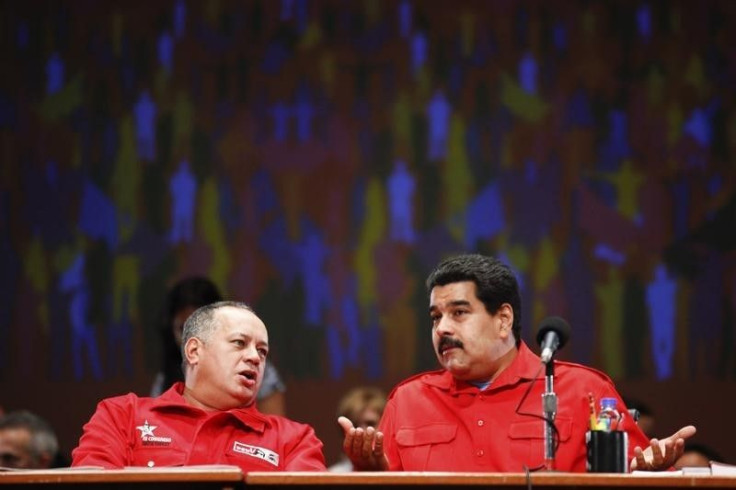US, Venezuela Keep Up Diplomacy Amid Concern From Exile Group

U.S. and Venezuelan officials continued efforts to improve diplomatic relations with a private, high-level meeting in Haiti over the weekend, to the chagrin of at least one Venezuelan exile group.
Venezuela Awareness Foundation, a Miami-based organization focused on human rights in Venezuela, noted its “deep concern” over the meeting between Thomas Shannon, counselor to U.S. Secretary of State John Kerry, and Venezuelan National Assembly leader Diosdado Cabello, widely considered Caracas’ second-in-command after President Nicolás Maduro. The brief meeting in Port-au-Prince, mediated by Haitian President Michel Martelly, came after several news organizations reported on an ongoing U.S. investigation of Cabello and other high-level Venezuelan officials over suspected links to drug trafficking.
“[T]he United States looks to increase business with Venezuela and normalize relations, when today there are 96 Venezuelan political prisoners, dozens under house arrest and hundreds on probation,” Venezuela Awareness wrote in a statement.
“It is extremely serious that an envoy from the Obama administration met with a Maduro envoy, that is, Diosdado Cabello, who has been accused in a New York City court of being the head of a drug cartel in Venezuela,” the statement added.
Earlier this year, several news outlets reported that federal investigators were targeting Cabello over alleged ties to the drug trade, citing unnamed sources close to the investigation. Cabello’s former bodyguard, Leamzy Salazar, defected from Venezuela in late 2014 to assist with the investigation, according to the reports.
U.S.-Venezuela relations generally have been rocky since late President Hugo Chávez came to power, but hit another rough patch earlier this year. Vice President Joe Biden met with the wife of prominent Venezuelan political prisoner Leopoldo López in February, and Maduro accused Biden of working with Venezuelan opposition groups to foment rebellion. Soon after, President Barack Obama issued sanctions on seven Venezuelan officials accused of committing human rights abuses against protesters participating in mass anti-government demonstrations in spring 2014.
Maduro criticized the sanctions forcefully, particularly as they contained language describing Venezuela as a national security threat to the U.S. Maduro painted them as a tool of U.S. imperialism and launched a signature campaign to pressure the Obama administration to nullify the order.
In recent months, however, tension between Washington and Caracas has ebbed. The U.S. sent Shannon, a State Department veteran, to Caracas in April to meet with Venezuelan officials and discuss smoothing relations. They’ve continued to meet since then, with Maduro remarking in late May that the talks were “going well.”
Meanwhile, Venezuela is still facing political pressures from within as Lopez and dozens of his supporters continue a highly publicized hunger strike in protest of the government’s policies. Lopez is on the 22nd day of his hunger strike, and in a message relayed over the weekend by his wife, Lilian Tintori, he vowed to “continue our strike with strength.”
© Copyright IBTimes 2024. All rights reserved.






















